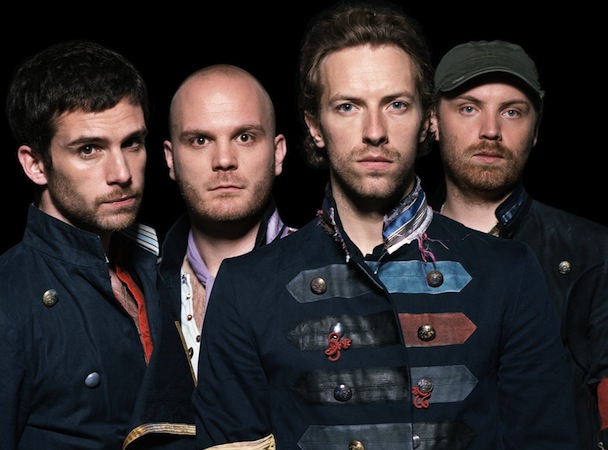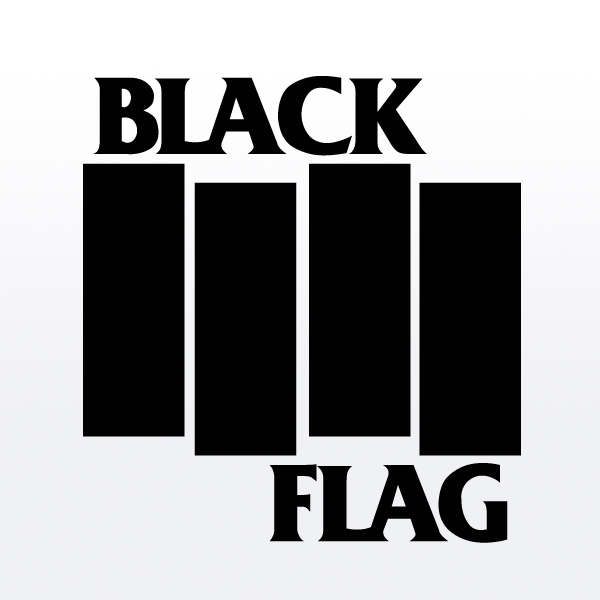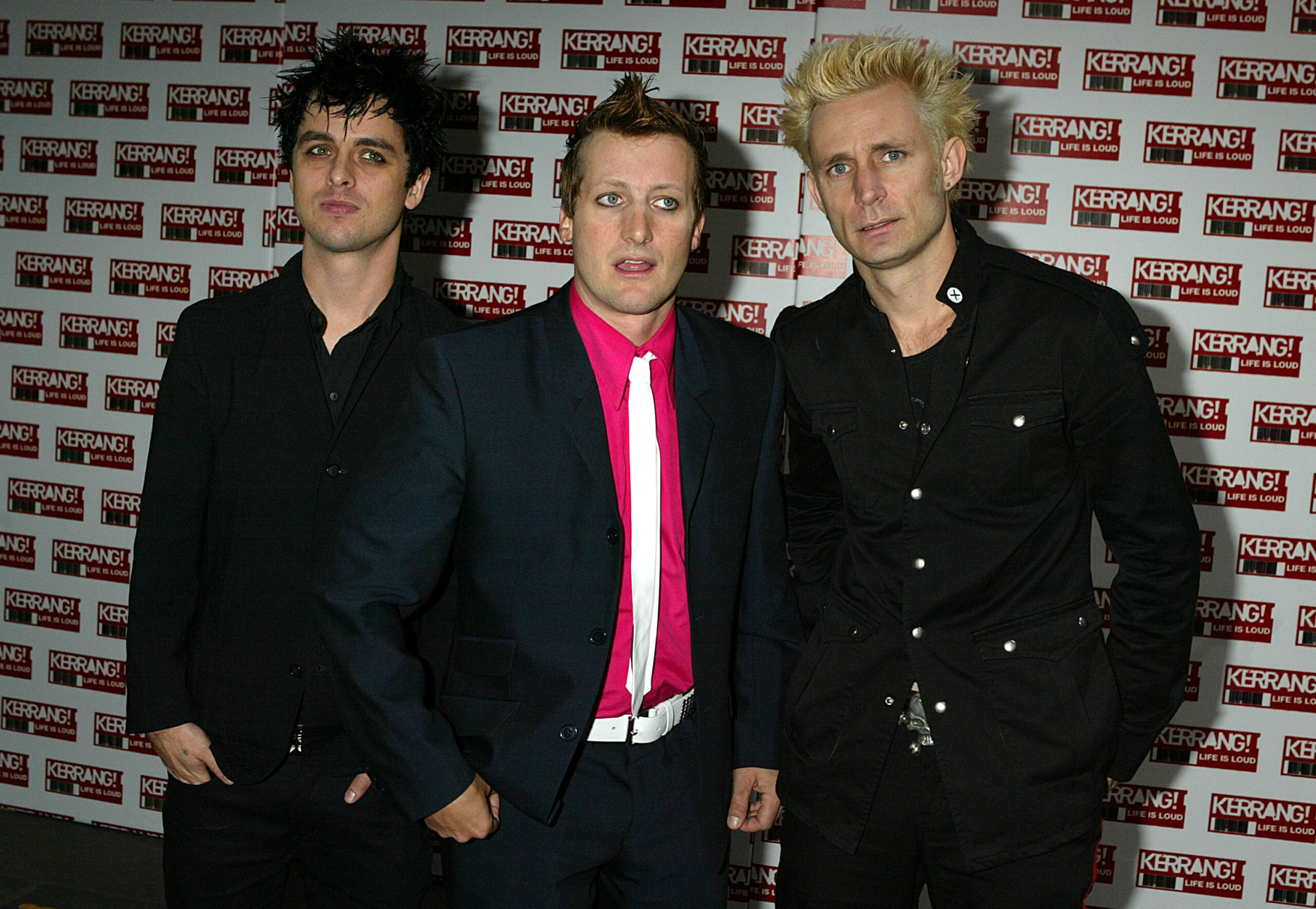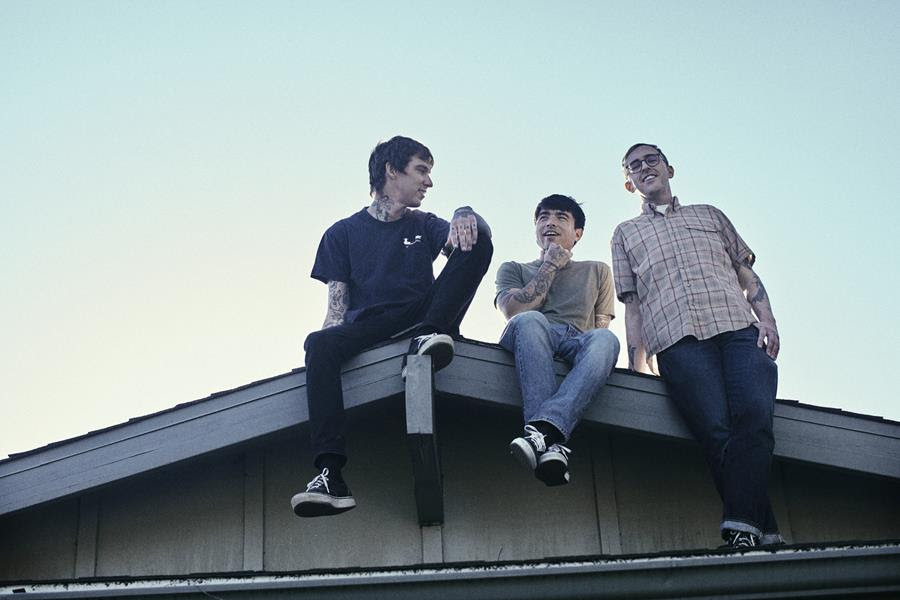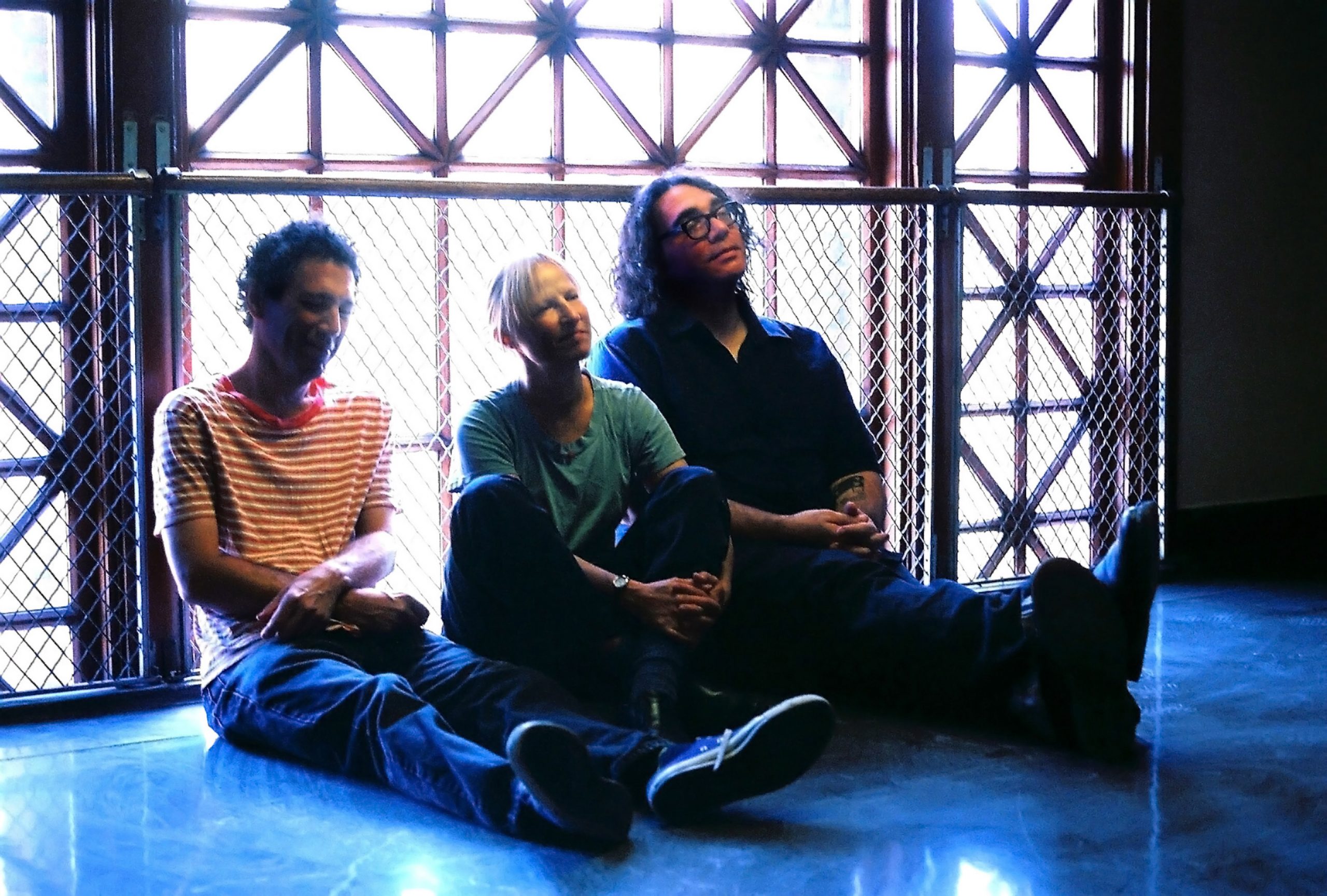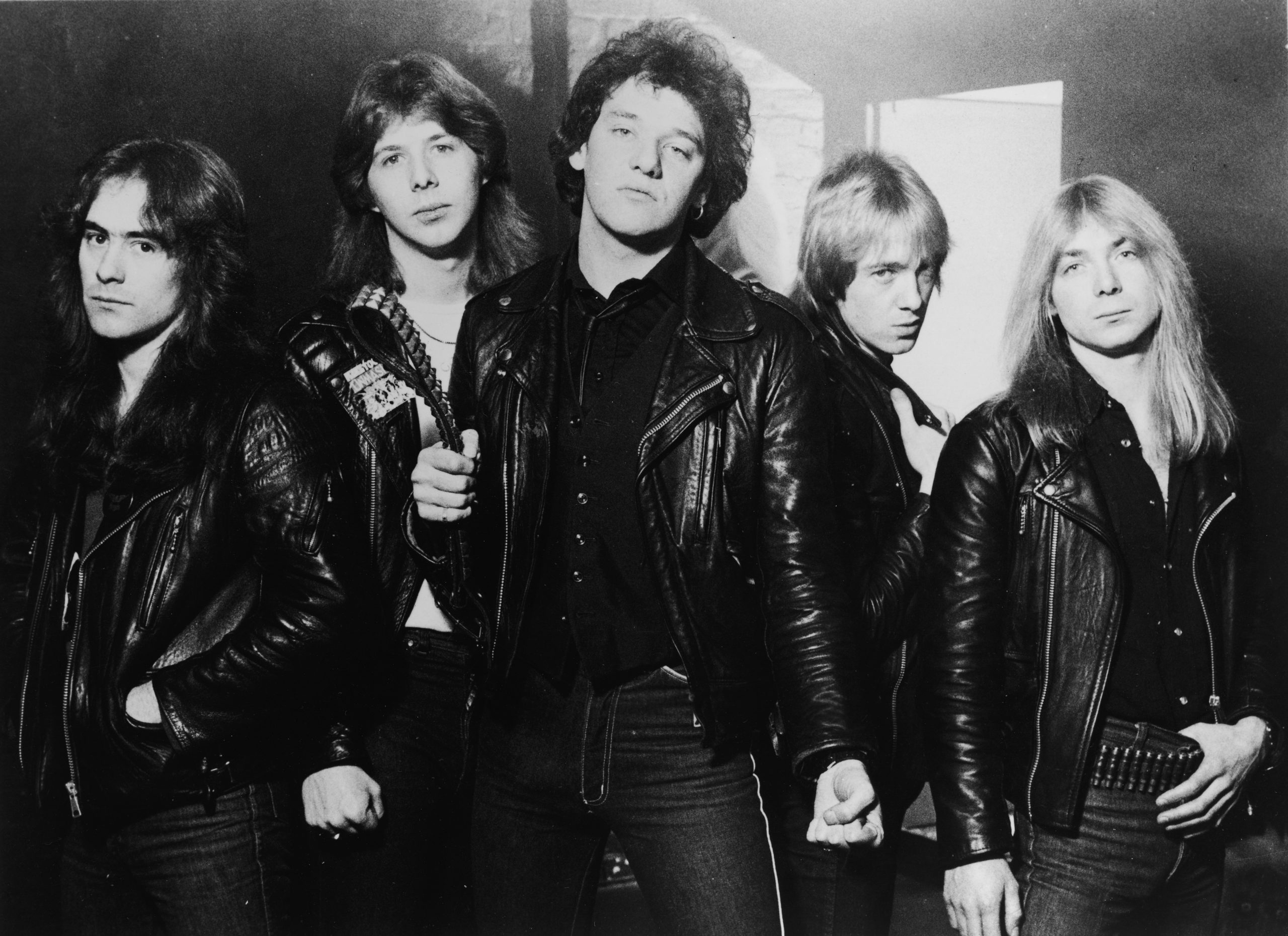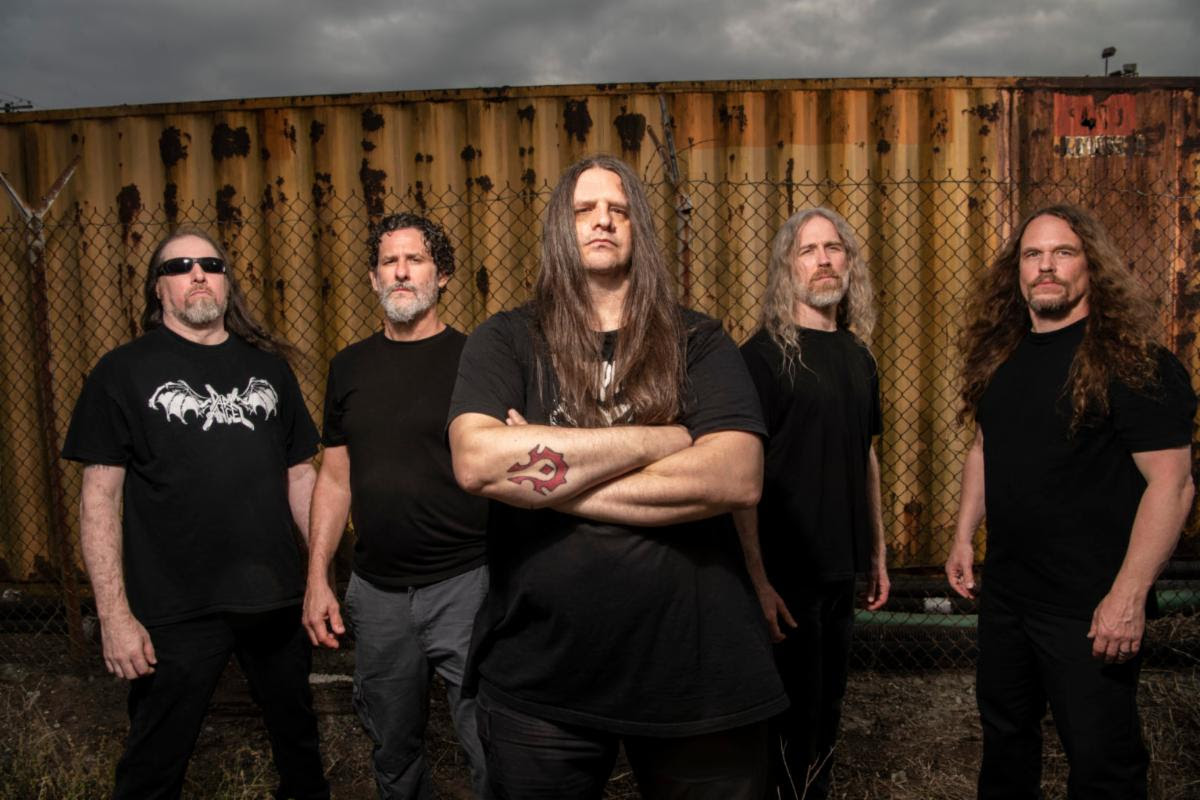One of the better moments in the last few stumbling seasons of The Office came when James Spader's Robert California offered his thoughts on the Black Eyed Peas: "It's rock and roll for people who don't like rock and roll; it's rap for people who don't like rap; it's pop for people who don't like pop." Not to begin this thing inauspiciously by comparing Coldplay to the Black Eyed Peas, but similarly structured criticisms could be applied: they're alternative music for people who don't like alternative music, a British artist for people who don't like British artists, sad music for people who don't like sad music. These characterizations don't necessarily have to be a problem, but it seems like we've all had a hard time accepting them. After all, if you try to be everything to everybody, there's a good chance that at least some of the population wants a punching bag.
Even as a band that emerged and almost immediately embarked upon an unwavering path of commercial and critical success across five albums, almost any review you read of Coldplay's music seems to either qualify them as "middle of the road," or at least somehow address how a band that has remained so big for so long has done so without what the reviewers in question would qualify as a specific personality (these latter reviews probably lean more towards the "everyman" or "universal" descriptors than the likes of "bland"). Given, this is primarily an issue within more indie-oriented music coverage, where perhaps Coldplay does pose a problem, albeit one that has more to do with our expectations and perceptions than it does with any promises made by the band themselves.
The simple truth is that Coldplay has, from their inception, been weighed down by how obviously they're influenced by their superior forebears. They're the lite-R.E.M., lite-U2, lite-Radiohead, etc., etc. It seems that somewhere along the way, it was decided that if Coldplay's sound quoted these bands, then they would be expected to be as daring as those bands have been, to push the boundaries of their sound in unforeseen ways. A sort of double standard has developed in covering Coldplay: We get cranky that they remain comfortable in the shade provided by the shadows of older artists, and yet we keep them in those shadows ourselves, getting all bent out of shape when the "experimental" Coldplay albums don't turn out to be as much of a slap in the face as Kid A. Not everyone has it in them to spin off the face of the planet in as glorious a fashion as Yorke & co., nor should we expect or want that from everyone. The most detrimental and time-wasting element of how Coldplay has been discussed since their rise to fame is that fact that we can't seem to assess them on their own terms. We rate Coldplay through rubrics designed from the bands Coldplay grew up listening to, not Coldplay themselves.
The result: "inoffensive." Seemingly every review of a Coldplay album includes the word, and a healthy sprinkling of synonyms throughout. It's not just rock critics — there was also the infamous Travelodge survey that ranked Coldplay as the artist most British people found best to fall asleep to, achieving the dubious victory of beating Michael Buble. (A lesser-mentioned, interesting sidenote/counterpoint to this conversation: Radiohead was also listed in the Top Ten of this list.) Used to such excess, describing a band as inoffensive becomes a shorthand, condescending way to dismiss them outright, but that doesn't mean it isn't effective. Thirteen years since Coldplay released Parachutes, does anyone know what we're supposed to do with Coldplay, how we are supposed to perceive them? As a solid but occasionally middling alternative band? As a mainstream rock band too timid to drift out into the weirder edges of their music? As a pop artist that savvily incorporates strains of their artsier idols?
My point with all this is that throughout their existence, an ongoing frustration has overshadowed Coldplay's music, as we're continually flustered with a band failing to live up to standards they never set for themselves (well, OK, sometimes they have made comparisons that didn't do them any favors). Maybe it's always been a matter of circumstance. Coldplay came out of the same post-Britpop movements that birthed bands like Elbow and Doves. Many British bands from this era had a lot shared DNA, a dose of melancholy, heavily atmospheric music, and, yes, a debt to Radiohead's '90s output. Out of the bunch, Coldplay was always more destined for immediate stardom: clean-cut guys fronted by a clean-voiced dude who would later marry Gwyneth Paltrow, compared to the Guy Garveys or Jimi Goodwins of the world, all shaggier and possessing craggier, more whiskey-soaked vocals at a young age. Their peers would go on to craft plenty of their own impassioned, chiming guitar anthems, but Coldplay would beat them to the punch. As thanks, they were an easy group to blame when we started getting that slew of weepy piano hits from the likes of Keane and the Fray.
All this might seem a sort of odd, half-endorsement leading into a feature that's supposed to function as a celebration of a band's catalog. It's not intended as such, but for a band so many try to write off as harmless, talking about Coldplay comes with a surprising amount of baggage. Nearly fifteen years in, the prejudices of these years carry. Even in these poptimistic halcyon days supposedly devoid of genre-tribalism, Coldplay remains the sort of band you admit to liking with a smirk and an "I know, I know." With an apology. This is a list that tries to say goodbye to all that, to consider Coldplay's music for artistic merit and staying power rather than oscillating hipness, to move away from assumptions of what their trajectory should have looked like and appreciate them for the consistently excellent pop artists they are.
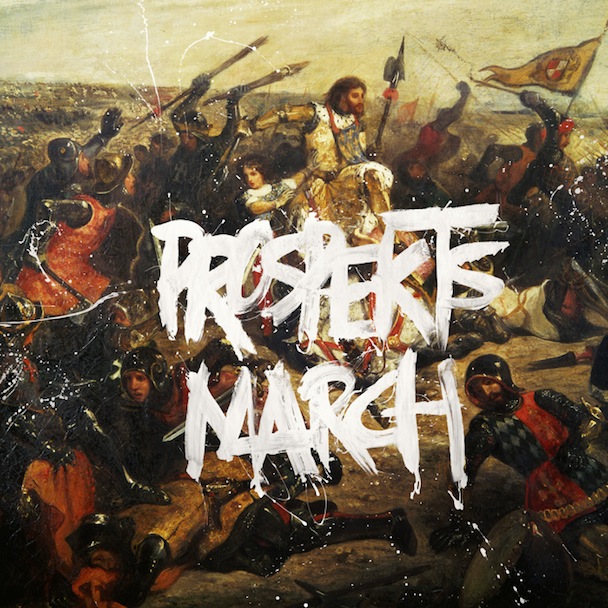
Composed of material remaining from the Viva La Vida sessions, the Prospekt's March EP is an odd bunch of songs. Despite Martin's claims that any of these tracks could've made the already diverse album, everything here definitely feels like leftovers, or at least tangents. The first issue here would be that, despite it being pushed as an eight-track expansion of Viva La Vida five months after the fact, Prospekt's March is a bit thin on new material. Three of the songs here had appeared already in slightly different forms on Viva La Vida. The alterations in the "Lovers In Japan (Osaka Sun Mix)" are pretty negligible, while "Lost+" is "Lost!" plus a Jay-Z verse. Otherwise, there's "Life In Technicolor ii," which takes the instrumental opening track of Viva La Vida and fleshes it out with vocals and verse-chorus structure. I seem to remember being excited back in '08 by what a fully-formed "Life In Technicolor" might sound like, but now I realize that was ridiculous, because the finished version wound up trite ("Oh love, don't let me go/ Won't you take me where the street lights glow?" goes the chorus) and squanders all the mystery of the original instrumental.
As for the new stuff, "Glass Of Water" and "Rainy Day" are significantly brighter in tone than the majority of Viva La Vida, the latter particularly seeming like Coldplay's oddball sketch of a long-lost summer song from the late '90s. "Prospekt's March/Poppyfields" and "Now My Feet Won't Touch The Ground" begin as primarily acoustic callbacks to the band's earlier work, the former a close melodic relative to A Rush Of Blood To The Head material. All the songs are pretty good additions to Coldplay's body of work, though it's unlikely any of them will stick with you too much. Thing is, Coldplay has a history of pretty strong B-sides. "One I Love" ("In My Place" B-side), "The World Turned Upside Down" ("Fix You" B-side) and "Moving to Mars" (from the Every Teardrop Is A Waterfall EP that preceded Mylo Xyloto) are all better than about half of the respective albums from which they were omitted, leaving you with the sense that there must've been some more memorable material from the Viva La Vida sessions that could've made Prospekt's March a more important release.
Composed of material remaining from the Viva La Vida sessions, the Prospekt's March EP is an odd bunch of songs. Despite Martin's claims that any of these tracks could've made the already diverse album, everything here definitely feels like leftovers, or at least tangents. The first issue here would be that, despite it being pushed as an eight-track expansion of Viva La Vida five months after the fact, Prospekt's March is a bit thin on new material. Three of the songs here had appeared already in slightly different forms on Viva La Vida. The alterations in the "Lovers In Japan (Osaka Sun Mix)" are pretty negligible, while "Lost+" is "Lost!" plus a Jay-Z verse. Otherwise, there's "Life In Technicolor ii," which takes the instrumental opening track of Viva La Vida and fleshes it out with vocals and verse-chorus structure. I seem to remember being excited back in '08 by what a fully-formed "Life In Technicolor" might sound like, but now I realize that was ridiculous, because the finished version wound up trite ("Oh love, don't let me go/ Won't you take me where the street lights glow?" goes the chorus) and squanders all the mystery of the original instrumental.
As for the new stuff, "Glass Of Water" and "Rainy Day" are significantly brighter in tone than the majority of Viva La Vida, the latter particularly seeming like Coldplay's oddball sketch of a long-lost summer song from the late '90s. "Prospekt's March/Poppyfields" and "Now My Feet Won't Touch The Ground" begin as primarily acoustic callbacks to the band's earlier work, the former a close melodic relative to A Rush Of Blood To The Head material. All the songs are pretty good additions to Coldplay's body of work, though it's unlikely any of them will stick with you too much. Thing is, Coldplay has a history of pretty strong B-sides. "One I Love" ("In My Place" B-side), "The World Turned Upside Down" ("Fix You" B-side) and "Moving to Mars" (from the Every Teardrop Is A Waterfall EP that preceded Mylo Xyloto) are all better than about half of the respective albums from which they were omitted, leaving you with the sense that there must've been some more memorable material from the Viva La Vida sessions that could've made Prospekt's March a more important release.
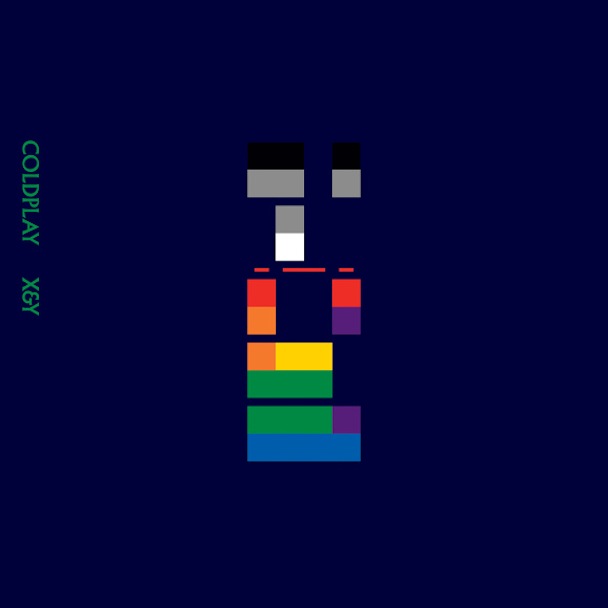
X&Y was reportedly one of the more troubled recording processes Coldplay has been through, with the band firing their producer and supposedly tossing at least two earlier iterations of the album before arriving at the version that saw release. Perhaps it is no coincidence then that X&Y is also the most forced of any Coldplay record. Though the band has rarely been shy about reaching for the anthemic, X&Y marked the point where they seemed to fully represent all the criticisms that had been sent their way. In that regard, there's a way in which it can be viewed as the most stereotypically Coldplay-ish Coldplay album, or maybe even the album where Coldplay was aping themselves. This was of course pointed out by many a reviewer and listener alike upon the initial release of "Speed Of Sound," which is an unabashed retread of "Clocks." Honestly, so many years removed from either, I've kind of come to prefer the former, though that may be as much because of the ubiquitous hotel lobby muzak arrangements of "Clocks" as it is because of the more pronounced groove and superior vocal melodies of the verses in "Speed Of Sound."
Throughout, Coldplay bludgeon the listener with supposed signifiers of emotion and drama, primarily in the steeped-in-falsetto slower numbers. There's the unbearably saccharine first half of "Fix You" that can't quite be redeemed by a second part that's musically better while still lacking lyrically. Most alarmingly, there are moments like "The Hardest Part" and "Swallowed In The Sea" that find Coldplay sounding like the cut-rate piano-pop they'd unfortunately inspired with earlier standouts like "The Scientist." These tracks are mainly what sink the album, remaining the weakest songs Coldplay has ever put out. Less odious but overdone nonetheless were the gentle synth undercurrents that were for a while so omnipresent in pop music, as to become placeholders for all the expansive possibility this new millennium supposedly held. They're unobtrusive enough, but you feel cheated, like the band must have known at this point that this was just a shortcut to achieving the epic sound they always sought.
Perhaps where X&Y doesn't get its due is the fact that these weak moments hobble an album that's otherwise populated with some of the band's more overlooked songs. The title track is a gorgeous entry in the band's series of occasional "Pink Floyd-via-OK Computer" moments, driven by guitarist Jonny Buckland alternating expertly between droning slide guitar and that celestial arpeggiating thing he does so well. The uptempo stuff displays a light bit of influence from New Wave and early electronic music alike, with "Talk" famously built around a sample from Kraftwerk's "Computer Love." It also features a guitar break that's positively grungy by Coldplay standards. The pulsating "White Shadows" and "Low" don't sound quite like anything else Coldplay has attempted, and if a touch heavier or with slightly less angelic vocal performances, would have some serious urgency behind them. These moments can't carry the whole thing though, and X&Y is the most bloated, wearied Coldplay album, an especially damning distinction when it tells you at every turn how much it wants to soar.
X&Y was reportedly one of the more troubled recording processes Coldplay has been through, with the band firing their producer and supposedly tossing at least two earlier iterations of the album before arriving at the version that saw release. Perhaps it is no coincidence then that X&Y is also the most forced of any Coldplay record. Though the band has rarely been shy about reaching for the anthemic, X&Y marked the point where they seemed to fully represent all the criticisms that had been sent their way. In that regard, there's a way in which it can be viewed as the most stereotypically Coldplay-ish Coldplay album, or maybe even the album where Coldplay was aping themselves. This was of course pointed out by many a reviewer and listener alike upon the initial release of "Speed Of Sound," which is an unabashed retread of "Clocks." Honestly, so many years removed from either, I've kind of come to prefer the former, though that may be as much because of the ubiquitous hotel lobby muzak arrangements of "Clocks" as it is because of the more pronounced groove and superior vocal melodies of the verses in "Speed Of Sound."
Throughout, Coldplay bludgeon the listener with supposed signifiers of emotion and drama, primarily in the steeped-in-falsetto slower numbers. There's the unbearably saccharine first half of "Fix You" that can't quite be redeemed by a second part that's musically better while still lacking lyrically. Most alarmingly, there are moments like "The Hardest Part" and "Swallowed In The Sea" that find Coldplay sounding like the cut-rate piano-pop they'd unfortunately inspired with earlier standouts like "The Scientist." These tracks are mainly what sink the album, remaining the weakest songs Coldplay has ever put out. Less odious but overdone nonetheless were the gentle synth undercurrents that were for a while so omnipresent in pop music, as to become placeholders for all the expansive possibility this new millennium supposedly held. They're unobtrusive enough, but you feel cheated, like the band must have known at this point that this was just a shortcut to achieving the epic sound they always sought.
Perhaps where X&Y doesn't get its due is the fact that these weak moments hobble an album that's otherwise populated with some of the band's more overlooked songs. The title track is a gorgeous entry in the band's series of occasional "Pink Floyd-via-OK Computer" moments, driven by guitarist Jonny Buckland alternating expertly between droning slide guitar and that celestial arpeggiating thing he does so well. The uptempo stuff displays a light bit of influence from New Wave and early electronic music alike, with "Talk" famously built around a sample from Kraftwerk's "Computer Love." It also features a guitar break that's positively grungy by Coldplay standards. The pulsating "White Shadows" and "Low" don't sound quite like anything else Coldplay has attempted, and if a touch heavier or with slightly less angelic vocal performances, would have some serious urgency behind them. These moments can't carry the whole thing though, and X&Y is the most bloated, wearied Coldplay album, an especially damning distinction when it tells you at every turn how much it wants to soar.
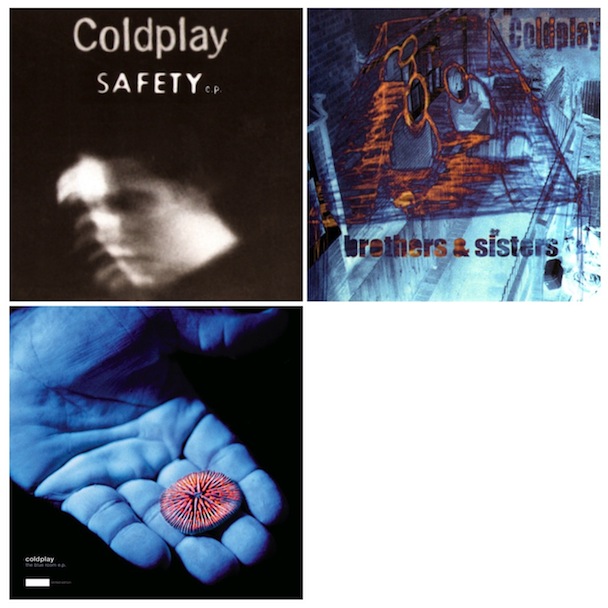
A series of EPs released through 1998 and 1999 leading up to the eventual 2000 release of Parachutes, Safety, Brothers & Sisters, and The Blue Room are listed together because collectively they form a part of the band's career too big to be left off this list entirely, but also because they share so many songs between them (and, later, Parachutes) that it'd be a bit redundant to talk about each of them separately, particularly because they really do feel of a single piece. Starting with Safety, which was mainly intended as a demo to send to record companies, these EPs represent the earliest manifestation of Coldplay figuring out their identity as a band, and they show an even more nascent artist than was glimpsed on Parachutes. The unending Travis and Radiohead comparisons are accurate enough here, though to be fair that's likely what a lot of young British bands sounded like in the late '90s when they were just starting to play around their hometowns. There are also echoes of Jeff Buckley, nowhere more evident than the guitars spiraling in "Brothers And Sisters" and then snarling in "Only Superstition." If you put the three EPs together and cut out the redundancies, you have an album's worth of strong material, including "High Speed" and an early version of "Don't Panic," both of which would later become highlights on Parachutes. What's interesting is how little this sounds like the Coldplay we've come to know. There are few pianos, the riffs are more gnarled than cascading, and the band is still gripped by a deeper melancholy, one where the edges hadn't yet been softened for mainstream consumption. They were still finding their way, so the accusations of Coldplay being derivative are perhaps more applicable here than on any other subsequent release, but the songcraft was already there and taken together Safety, Brothers & Sisters, and The Blue Room remain a worthwhile document of Coldplay's earliest stages.
A series of EPs released through 1998 and 1999 leading up to the eventual 2000 release of Parachutes, Safety, Brothers & Sisters, and The Blue Room are listed together because collectively they form a part of the band's career too big to be left off this list entirely, but also because they share so many songs between them (and, later, Parachutes) that it'd be a bit redundant to talk about each of them separately, particularly because they really do feel of a single piece. Starting with Safety, which was mainly intended as a demo to send to record companies, these EPs represent the earliest manifestation of Coldplay figuring out their identity as a band, and they show an even more nascent artist than was glimpsed on Parachutes. The unending Travis and Radiohead comparisons are accurate enough here, though to be fair that's likely what a lot of young British bands sounded like in the late '90s when they were just starting to play around their hometowns. There are also echoes of Jeff Buckley, nowhere more evident than the guitars spiraling in "Brothers And Sisters" and then snarling in "Only Superstition." If you put the three EPs together and cut out the redundancies, you have an album's worth of strong material, including "High Speed" and an early version of "Don't Panic," both of which would later become highlights on Parachutes. What's interesting is how little this sounds like the Coldplay we've come to know. There are few pianos, the riffs are more gnarled than cascading, and the band is still gripped by a deeper melancholy, one where the edges hadn't yet been softened for mainstream consumption. They were still finding their way, so the accusations of Coldplay being derivative are perhaps more applicable here than on any other subsequent release, but the songcraft was already there and taken together Safety, Brothers & Sisters, and The Blue Room remain a worthwhile document of Coldplay's earliest stages.
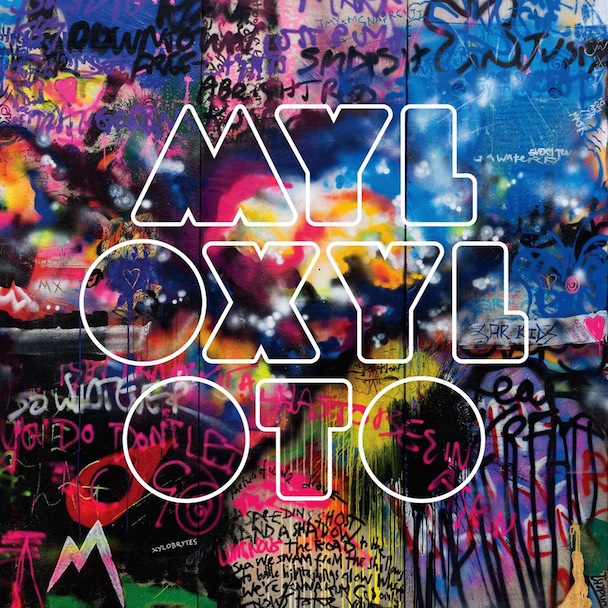
Technically, Mylo Xyloto is a concept album, a rock opera. A dubious proposition in the best of hands, a Coldplay concept album is an idea that elicits some eyerolls, and for good reason. Chris Martin hasn't ever been known as a genius lyricist, and a lot of the themes Coldplay have previously written about are very much a broad-strokes, relate-to-everybody kind of thing. There isn't the sort of singular identity or message here that might be able to hold up a concept album. Maybe that's partially why it doesn't even really feel like a concept album, the reason I started this off by saying "technically." Just take a look at the Wikipedia entry on this thing, and you'll see a paragraph summary of a pretty intricate story, that also sounds kind of ridiculous (as all rock operas inherently do), and also sounds sort of foreign — like, none of this is really evident on the album aside from a few character names and such. If you hear Martin talk about the supposed influences on the album, it just gets messier. The band cites old-school American graffiti, which is evident enough from the Day-Glo that permeates the album art as well as production, but that's bizarrely contrasted with Martin claiming the White Rose resistance and The Wire as other touchstones and well, yeah, you just don't really hear that in Coldplay's music ever. Saddled with all this conceptual nonsense out of the gate, Mylo Xyloto has to be the kind of thing that brings the songs strong enough to help you just roll with it.
When it was first released in 2011, I definitely didn't think it brought those songs. It felt like a too-slick record full of paint-by-numbers Coldplay songs dressed up with a few production flourishes. Call it the underdog of Coldplay's catalog then (which is kind of silly to consider, because all of their albums have sold way more than most rock bands could dream of in the digital era anyway), because it's wound up being a grower, an album whose strengths have emerged in all their vivid neon pinks and yellows to easily outshine the dour blue of that X&Y cover.
Their second outing with Brian Eno handling production, Mylo Xyloto was positioned as another stylistic expansion for the band. The most obvious left turn here also happens to represent a bid for pop hits that was even more blatant than usual. The synth-drenched, hip hop and R&B influenced "Paradise" and "Princess Of China" are some of the most successful moments on the album, each a brilliantly structured pop single in their own right. The only thing is they don't quite sound like Coldplay in the same way their other singles have. They're good songs and promise the possibility of new textures for the band's music, it just feels like Coldplay is still figuring out how to fully incorporate this stuff into their DNA. Even with that, the long bleeding drone that drops in all over "Princess Of China" feels like the best musical representation what they were trying to achieve on Mylo Xyloto. It's unlike any other sound in Coldplay's catalog, and has enough distorted anxiety to evoke whatever dystopian future is supposed to be the setting for the album's story.
In between the R&B moments, the talk of new stylistic ground can be a bit of a stretch. A lot of Mylo Xyloto feels like songs that are very recognizably Coldplay but dressed up with a few new tricks. One of the distinguishing characteristics is that it actually sounds more consistently happy and bright than pretty much any other example of their work, not that their sad music was really all that depressive (remember: sad music for people who don't like sad music). "Hurts Like Heaven" and "Don't Let It Break Your Heart" glisten while charging along with more insistence than the band has ever committed to a record. The riff that "Charlie Brown" revolves around sort of sounds like the kind of riff someone writes for a commercial when they're given the prompt "sentimental, Coldplay-esque pop," but it becomes more and more endearing with each listen. Elsewhere, the approach stumbles, as with the cloying sheen of "Every Teardrop Is A Waterfall," may be the most self-parodic song in a catalog littered with songs that balance on the precipice of self-parody. After two years though, weaker moments like that have receded, and the good stuff here still feels vital. There's a lingering sense that Mylo Xyloto is an album where Coldplay's conceptual intentions and how they should relate to the songs are a bit muddled, but it's ultimately a sign towards more promising developments to come.
Technically, Mylo Xyloto is a concept album, a rock opera. A dubious proposition in the best of hands, a Coldplay concept album is an idea that elicits some eyerolls, and for good reason. Chris Martin hasn't ever been known as a genius lyricist, and a lot of the themes Coldplay have previously written about are very much a broad-strokes, relate-to-everybody kind of thing. There isn't the sort of singular identity or message here that might be able to hold up a concept album. Maybe that's partially why it doesn't even really feel like a concept album, the reason I started this off by saying "technically." Just take a look at the Wikipedia entry on this thing, and you'll see a paragraph summary of a pretty intricate story, that also sounds kind of ridiculous (as all rock operas inherently do), and also sounds sort of foreign — like, none of this is really evident on the album aside from a few character names and such. If you hear Martin talk about the supposed influences on the album, it just gets messier. The band cites old-school American graffiti, which is evident enough from the Day-Glo that permeates the album art as well as production, but that's bizarrely contrasted with Martin claiming the White Rose resistance and The Wire as other touchstones and well, yeah, you just don't really hear that in Coldplay's music ever. Saddled with all this conceptual nonsense out of the gate, Mylo Xyloto has to be the kind of thing that brings the songs strong enough to help you just roll with it.
When it was first released in 2011, I definitely didn't think it brought those songs. It felt like a too-slick record full of paint-by-numbers Coldplay songs dressed up with a few production flourishes. Call it the underdog of Coldplay's catalog then (which is kind of silly to consider, because all of their albums have sold way more than most rock bands could dream of in the digital era anyway), because it's wound up being a grower, an album whose strengths have emerged in all their vivid neon pinks and yellows to easily outshine the dour blue of that X&Y cover.
Their second outing with Brian Eno handling production, Mylo Xyloto was positioned as another stylistic expansion for the band. The most obvious left turn here also happens to represent a bid for pop hits that was even more blatant than usual. The synth-drenched, hip hop and R&B influenced "Paradise" and "Princess Of China" are some of the most successful moments on the album, each a brilliantly structured pop single in their own right. The only thing is they don't quite sound like Coldplay in the same way their other singles have. They're good songs and promise the possibility of new textures for the band's music, it just feels like Coldplay is still figuring out how to fully incorporate this stuff into their DNA. Even with that, the long bleeding drone that drops in all over "Princess Of China" feels like the best musical representation what they were trying to achieve on Mylo Xyloto. It's unlike any other sound in Coldplay's catalog, and has enough distorted anxiety to evoke whatever dystopian future is supposed to be the setting for the album's story.
In between the R&B moments, the talk of new stylistic ground can be a bit of a stretch. A lot of Mylo Xyloto feels like songs that are very recognizably Coldplay but dressed up with a few new tricks. One of the distinguishing characteristics is that it actually sounds more consistently happy and bright than pretty much any other example of their work, not that their sad music was really all that depressive (remember: sad music for people who don't like sad music). "Hurts Like Heaven" and "Don't Let It Break Your Heart" glisten while charging along with more insistence than the band has ever committed to a record. The riff that "Charlie Brown" revolves around sort of sounds like the kind of riff someone writes for a commercial when they're given the prompt "sentimental, Coldplay-esque pop," but it becomes more and more endearing with each listen. Elsewhere, the approach stumbles, as with the cloying sheen of "Every Teardrop Is A Waterfall," may be the most self-parodic song in a catalog littered with songs that balance on the precipice of self-parody. After two years though, weaker moments like that have receded, and the good stuff here still feels vital. There's a lingering sense that Mylo Xyloto is an album where Coldplay's conceptual intentions and how they should relate to the songs are a bit muddled, but it's ultimately a sign towards more promising developments to come.
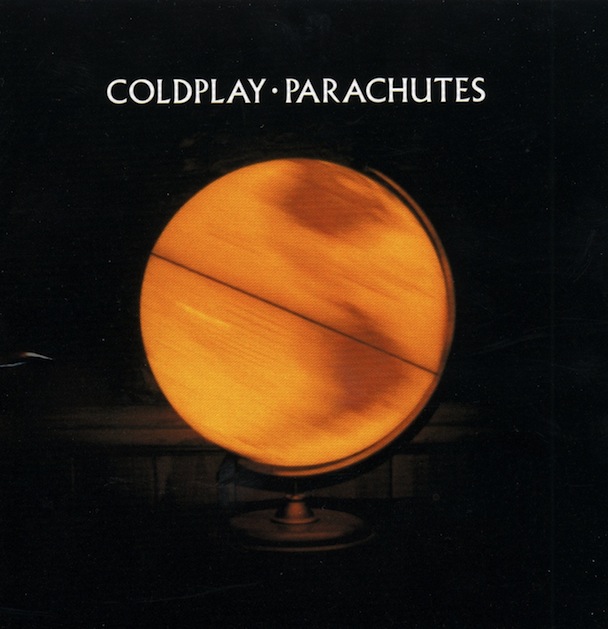
Somewhat unexpectedly, ranking the top three of this list emerged as one of the more difficult portions of any of these lists I've written thus far, and with some degree of surprise to myself (and, I'm sure, to the chagrin of some longtime fans) I've wound up putting Parachutes at No. 3. Coldplay is one of those bands where you have to take a step back to realize just how different each of their albums is from the last; some of the sameness of the singles can gloss over the fact that they've innovated slightly with each subsequent release, never pushing their sound too far but always returning with something noticeably different. As a result, we're left with a Top 3 that could be organized in any variation depending on what version of Coldplay you prefer, but also — and perhaps more crucially, I'd argue — we're left with three albums that carry a much wider spectrum of moods than we've come to associate with Coldplay.
In some ways Parachutes is what is stereotypically tagged to Coldplay — moody, atmospheric, but not overly dark. As time went on they got associated with a slightly sappier form of melancholy, and Parachutes remains a portrait of a younger, more personal band. Coldplay was always earnest, but it was an insular earnestness here rather than a rafter-reaching one. Though it wound up having its own world-conquering capabilities all the same, Parachutes doesn't audibly have that ambition in the same way as their later releases. It's intimate. An ultimate rainy day album.
Some will read the above paragraph and cite all those reasons as why Parachutes is still Coldplay's best album, and for a long time I would've steadfastly agreed (and some days, I suppose I still would). Going back through their catalog, years removed from the overexposure of their singles or interviews alternating between charming and grating, I've come to appreciate Coldplay as pop artists pure and simple, to prefer their big gestures even if they're sometimes more embarrassing or over the top than the small-screen grandeur of the Parachutes aesthetic. After all, "intimate" and "restrained" would be some ways to describe it, but so would "less self-assured." With hindsight, Coldplay was always gunning to be massive stars, and within that context Parachutes sounds more like a warm-up for bigger crescendoes than it does a deliberately alternative debut.
So that's why it's ranked here, but outside of all that what remains is still some of Coldplay's best work. "Don't Panic" rightfully remains a fan favorite, and there are true forgotten gems in "Spies" and "High Speed." Martin's voice being less fully formed plays to these songs' benefits — he has an almost ragged approach on "Sparks" and "We Never Change," and a lot of Parachutes sounds world-weary before its time. Unfortunately, it seems the band may have internalized some of the criticisms leveled at them upon the release of Parachutes, the reviews that fixated on how evident the influences of the album were. Martin at one point basically disowned the thing, and nothing but the hits seem to make it into the live rotation anymore. That's a shame, because it remains a gorgeous album, and it'd be great to hear what a contemporary Coldplay's more finely honed skill set could bring to a new set of songs this deliberately small and intimate (interestingly, this was apparently the intention leading into album No. 5 before it became Mylo Xyloto). More than a decade later and with Coldplay already having weathered a few changes of the mainstream guard, it doesn't matter that Parachutes didn't have its own immediate, distinct identity alongside the band's contemporaries. It's one of the releases from that time that has endured, and stripped of context Parachutes stands alone as a remarkable debut album.
Somewhat unexpectedly, ranking the top three of this list emerged as one of the more difficult portions of any of these lists I've written thus far, and with some degree of surprise to myself (and, I'm sure, to the chagrin of some longtime fans) I've wound up putting Parachutes at No. 3. Coldplay is one of those bands where you have to take a step back to realize just how different each of their albums is from the last; some of the sameness of the singles can gloss over the fact that they've innovated slightly with each subsequent release, never pushing their sound too far but always returning with something noticeably different. As a result, we're left with a Top 3 that could be organized in any variation depending on what version of Coldplay you prefer, but also — and perhaps more crucially, I'd argue — we're left with three albums that carry a much wider spectrum of moods than we've come to associate with Coldplay.
In some ways Parachutes is what is stereotypically tagged to Coldplay — moody, atmospheric, but not overly dark. As time went on they got associated with a slightly sappier form of melancholy, and Parachutes remains a portrait of a younger, more personal band. Coldplay was always earnest, but it was an insular earnestness here rather than a rafter-reaching one. Though it wound up having its own world-conquering capabilities all the same, Parachutes doesn't audibly have that ambition in the same way as their later releases. It's intimate. An ultimate rainy day album.
Some will read the above paragraph and cite all those reasons as why Parachutes is still Coldplay's best album, and for a long time I would've steadfastly agreed (and some days, I suppose I still would). Going back through their catalog, years removed from the overexposure of their singles or interviews alternating between charming and grating, I've come to appreciate Coldplay as pop artists pure and simple, to prefer their big gestures even if they're sometimes more embarrassing or over the top than the small-screen grandeur of the Parachutes aesthetic. After all, "intimate" and "restrained" would be some ways to describe it, but so would "less self-assured." With hindsight, Coldplay was always gunning to be massive stars, and within that context Parachutes sounds more like a warm-up for bigger crescendoes than it does a deliberately alternative debut.
So that's why it's ranked here, but outside of all that what remains is still some of Coldplay's best work. "Don't Panic" rightfully remains a fan favorite, and there are true forgotten gems in "Spies" and "High Speed." Martin's voice being less fully formed plays to these songs' benefits — he has an almost ragged approach on "Sparks" and "We Never Change," and a lot of Parachutes sounds world-weary before its time. Unfortunately, it seems the band may have internalized some of the criticisms leveled at them upon the release of Parachutes, the reviews that fixated on how evident the influences of the album were. Martin at one point basically disowned the thing, and nothing but the hits seem to make it into the live rotation anymore. That's a shame, because it remains a gorgeous album, and it'd be great to hear what a contemporary Coldplay's more finely honed skill set could bring to a new set of songs this deliberately small and intimate (interestingly, this was apparently the intention leading into album No. 5 before it became Mylo Xyloto). More than a decade later and with Coldplay already having weathered a few changes of the mainstream guard, it doesn't matter that Parachutes didn't have its own immediate, distinct identity alongside the band's contemporaries. It's one of the releases from that time that has endured, and stripped of context Parachutes stands alone as a remarkable debut album.
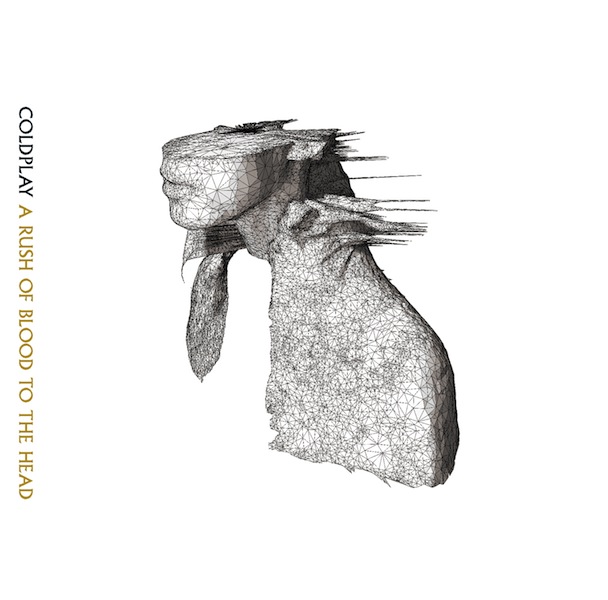
In a lot of ways, A Rush Of Blood To The Head is the quintessential Coldplay album. Immediately building upon its predecessor and expanding the band's sound, Coldplay's sophomore effort has a trio of singles that are arguably still their most iconic: "In My Place," "Clocks," and "The Scientist" (though "Yellow," "Fix You," and "Viva La Vida," all belong in the conversation, despite the variance in quality). With such songs, the template of what would stereotypically be associated with Coldplay was firmly established. The frequent use of piano and Martin's falsetto would quickly become things the band would over-rely on before Brian Eno entered the picture and made them cut it back, but initially they were markers of how the band was building a more sophisticated and varied sound. The switch to primarily electric instruments immediately gave them more punch and also suggested the band was more consciously shooting for the big leagues.
In some cases that now works to the album's detriment, as these singles and the sound associated with them might be the one part of Coldplay's catalog that's still hard to look at outside of the over-exposure they received. "Clocks" and "In My Place" are the kind of songs that never really go away, which could mean they're great pop singles, but could also mean they've been rendered inert. They're the kind of songs that are like big flashing roadblocks as you listen to the albums, things that live almost entirely outside of A Rush Of Blood To The Head and make it a disjointed listening experience for the way they distract from the album's overall flow. The lesser known songs that are closely related in style ("Green Eyes," "Warning Sign") sometimes grow tedious as well. It would be interesting to see how a younger generation of Coldplay fans coming up in the total absence of radio relevancy would perceive these songs, and if A Rush Of Blood To The Head would become for them the unquestionable classic in Coldplay's catalog (which, to be fair, it does still remain for many fans).
As much as the album can be defined by this version of Coldplay, what surrounds them is some of the band's darkest and most rewarding material. It's almost enough to make you understand why fans and critics at one point expected Coldplay to follow their idols down more challenging rabbit holes, though knowing Coldplay as we know them now it's evident that even their most fraught moments will be gentler than those of the luminaries to which they're always compared. Even so, A Rush Of Blood To The Head starts off with the emphatic push of "Politik." While it's tempting to consider how truly intense this song could be in other hands, it's plenty exhilarating as is, and remains maybe the single best song Coldplay has ever written. Elsewhere there's the haunting verses of "Daylight" breaking into choruses worthy of the title before tumbling into one of the only Coldplay outros I can recall that decides not to burst into triumphant refrains but instead to walk out with the paranoia it carried in.
The peak comes with the final three tracks, starting with the churning "A Whisper," continuing on through the title track, and then onto closer "Amsterdam," perhaps the best example of Coldplay delivering a melody worthy of a simple piano and vocals reading as well as a final climax that's just satisfying enough without reaching too far. But let's return to "A Rush Of Blood To The Head" for a moment, the main contender with "Politik" for the best thing Coldplay's ever done. Simply put, it's as furious as Coldplay gets. Martin's lyrics often don't do the emotive qualities of Coldplay's music justice; that isn't the case here. "You said I'm gonna buy this place and burn it down," the song begins, with another verse going "You said I'm going to buy a gun and start a war." They're likely the two most striking images in all of Coldplay's music, only moderately dulled by a "You said..." attribution and Martin's unwillingness to fully commit to the sentiment before eventually switching to "So I'm going to buy a gun..." later in the song. The bitter resolve of these verses build to choruses buoyed on the ethereal insistence of Buckland's guitar. It's not quite bursting at the seems as much as you want it to — and I've had wandering thoughts of the Crazy Horse-grunge Dinosaur Jr. could bring to a cover of this, or what shambolic run-through Titus Andronicus would give it, or how Jim James's roar could sound over My Morning Jacket thrashing through that chorus — but Coldplay has rarely sounded as impassioned.
Even with its evident self-awareness, A Rush Of Blood To The Head has that feeling you sometimes get with young bands on the cusp of real superstardom, that they can sound epic without seeming as if they entirely intended to do so. A Rush Of Blood To The Head was more confident than Parachutes, but not as plotted as their future releases, giving it a casual grandiosity the band never quite recaptured. They were, in short, not yet carrying the baggage of "being Coldplay."
In a lot of ways, A Rush Of Blood To The Head is the quintessential Coldplay album. Immediately building upon its predecessor and expanding the band's sound, Coldplay's sophomore effort has a trio of singles that are arguably still their most iconic: "In My Place," "Clocks," and "The Scientist" (though "Yellow," "Fix You," and "Viva La Vida," all belong in the conversation, despite the variance in quality). With such songs, the template of what would stereotypically be associated with Coldplay was firmly established. The frequent use of piano and Martin's falsetto would quickly become things the band would over-rely on before Brian Eno entered the picture and made them cut it back, but initially they were markers of how the band was building a more sophisticated and varied sound. The switch to primarily electric instruments immediately gave them more punch and also suggested the band was more consciously shooting for the big leagues.
In some cases that now works to the album's detriment, as these singles and the sound associated with them might be the one part of Coldplay's catalog that's still hard to look at outside of the over-exposure they received. "Clocks" and "In My Place" are the kind of songs that never really go away, which could mean they're great pop singles, but could also mean they've been rendered inert. They're the kind of songs that are like big flashing roadblocks as you listen to the albums, things that live almost entirely outside of A Rush Of Blood To The Head and make it a disjointed listening experience for the way they distract from the album's overall flow. The lesser known songs that are closely related in style ("Green Eyes," "Warning Sign") sometimes grow tedious as well. It would be interesting to see how a younger generation of Coldplay fans coming up in the total absence of radio relevancy would perceive these songs, and if A Rush Of Blood To The Head would become for them the unquestionable classic in Coldplay's catalog (which, to be fair, it does still remain for many fans).
As much as the album can be defined by this version of Coldplay, what surrounds them is some of the band's darkest and most rewarding material. It's almost enough to make you understand why fans and critics at one point expected Coldplay to follow their idols down more challenging rabbit holes, though knowing Coldplay as we know them now it's evident that even their most fraught moments will be gentler than those of the luminaries to which they're always compared. Even so, A Rush Of Blood To The Head starts off with the emphatic push of "Politik." While it's tempting to consider how truly intense this song could be in other hands, it's plenty exhilarating as is, and remains maybe the single best song Coldplay has ever written. Elsewhere there's the haunting verses of "Daylight" breaking into choruses worthy of the title before tumbling into one of the only Coldplay outros I can recall that decides not to burst into triumphant refrains but instead to walk out with the paranoia it carried in.
The peak comes with the final three tracks, starting with the churning "A Whisper," continuing on through the title track, and then onto closer "Amsterdam," perhaps the best example of Coldplay delivering a melody worthy of a simple piano and vocals reading as well as a final climax that's just satisfying enough without reaching too far. But let's return to "A Rush Of Blood To The Head" for a moment, the main contender with "Politik" for the best thing Coldplay's ever done. Simply put, it's as furious as Coldplay gets. Martin's lyrics often don't do the emotive qualities of Coldplay's music justice; that isn't the case here. "You said I'm gonna buy this place and burn it down," the song begins, with another verse going "You said I'm going to buy a gun and start a war." They're likely the two most striking images in all of Coldplay's music, only moderately dulled by a "You said..." attribution and Martin's unwillingness to fully commit to the sentiment before eventually switching to "So I'm going to buy a gun..." later in the song. The bitter resolve of these verses build to choruses buoyed on the ethereal insistence of Buckland's guitar. It's not quite bursting at the seems as much as you want it to — and I've had wandering thoughts of the Crazy Horse-grunge Dinosaur Jr. could bring to a cover of this, or what shambolic run-through Titus Andronicus would give it, or how Jim James's roar could sound over My Morning Jacket thrashing through that chorus — but Coldplay has rarely sounded as impassioned.
Even with its evident self-awareness, A Rush Of Blood To The Head has that feeling you sometimes get with young bands on the cusp of real superstardom, that they can sound epic without seeming as if they entirely intended to do so. A Rush Of Blood To The Head was more confident than Parachutes, but not as plotted as their future releases, giving it a casual grandiosity the band never quite recaptured. They were, in short, not yet carrying the baggage of "being Coldplay."
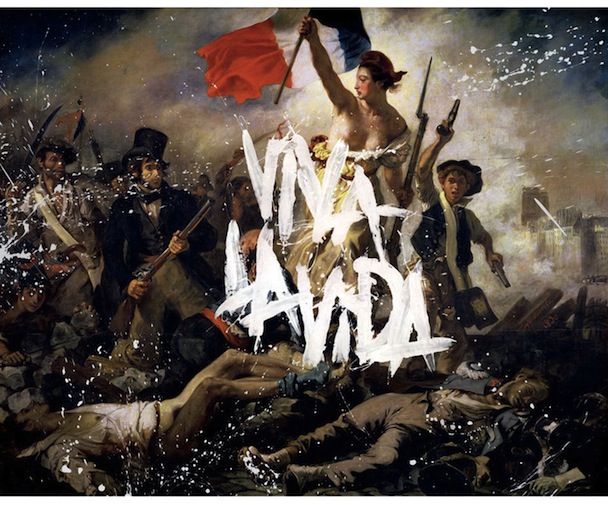
After X&Y entered the world as a drag for listener and performer alike, Coldplay decided to do what a lot of artists have done before them: turn to Brian Eno to help them strip it back while also exploring new ground. Eno helped the band zero in on their strengths. In comparison to the atmospheric carpet-bombing of its predecessor, Viva La Vida deploys the band's stock tricks in a more measured, and ultimately effective, fashion. He also insisted every song sound different, a tall order for a band that could achieve diversity easily enough between separate albums, but almost always lumped a few redundancies onto a record. The result was Viva La Vida Or Death And All His Friends — a decidedly un-stripped-back title of an album, but anyway — the tightest, most cohesive, and yet also most adventurous album Coldplay has ever released.
Viva La Vida is one of those albums that plays as a collection of ten or so other bands' biggest hits. The thing is just stacked — it's ten minutes shorter than A Rush Of Blood To The Head, and yet it covers more stylistic ground than perhaps all of their other albums combined. No space feels wasted, and the songs are overflowing with enough fully formed ideas and indelible melodies that they could've easily broken off into several different songs. Nowhere is that more evident than in the multi-part "42," which before starting off with a typical Coldplay piano intro, segues into a jaggedly funky mid-section that eventually leads into a finale that rides out on a Strokes riff. Organ drones and a percussion loop transform "Lost!" from an also-ran of earlier Coldplay material to one of their most interesting songs (though it also has some pretty embarrassing lyrics; you can't win 'em all). "Yes" takes those hints of faraway places from "Daylight" and expands it into one of the most interesting arrangements on the album, Martin suddenly adopting a sultry low-register amongst an exotic string part that approximates the distant cries of some unidentifiable animal. Without hardly pausing for a breath, they tumble into the mollified shoegaze of "Chinese Sleep Chant," housed on the same track.
While Eno's influence is palpable, it does do a disservice to the members of Coldplay to credit him entirely for the evolutions of Viva La Vida. As three nondescript-looking white guys from Britain, the other members still have a certain amount of anonymity here, Martin's earnestness and awkward humility long having been enough low-hanging fruit for jokes at the band's expense. What's hidden underneath there is a solid backing group, with bassist Guy Berryman and drummer Will Champion comprising a solid and surprisingly versatile rhythm section. The compressed, robotic slinkiness of "42" leads to the anthemic march of "Lovers In Japan," to the undulations of "Yes," to the stomp of "Violet Hill," to the serene throb of "Strawberry Swing," the best song here. And though Martin often claims there'd be no Coldplay without Jonny Buckland, he remains an unsung guitarist, a man capable of that familiar chiming guitar arpeggio, but also at unspooling an endless succession of earworm-y guitar figures both arena-sized and impressionistically textural alike. The variety in his playing on this album alone is impressive.
Upon its release, Viva La Vida was well-received, though it wasn't uncommon to see a writer lament that the album wasn't as jarring a shift as the band had supposedly promised. I'd argue that this was the final turning point in how we should perceive Coldplay, in what we should expect out of them. It wasn't clear from those early albums which route Coldplay would take, exactly. Viva La Vida was positioned as the maturation, the big change, and, of course, it turns out that it's still very accessible, that it's adventurous but still firmly sounds like Coldplay. On past outings, there were moments where it felt like Coldplay might've been pulling their punches a bit — that whole, "OK, 'Politik' is great but make it louder, nastier," kind of sentiment. You can't say the same thing about Viva La Vida. It's a fully realized project, an album that's just new and weird enough for them, and features their most consistently strong writing. They seem to be growing in the direction of being at peace with the idea of being a really, really good pop band, and it's past the time where we should be at peace with that, too. Coldplay isn't the next U2 or Radiohead. They're Coldplay, and they've earned that at this point. So maybe they won't ever produce something as legendary as Achtung Baby or Kid A, but neither will most artists. Viva La Vida is a great album in its own right, a sign that this band has more in them than we expected, further proving it's time to check our expectations at the door and enjoy Coldplay for being Coldplay.
After X&Y entered the world as a drag for listener and performer alike, Coldplay decided to do what a lot of artists have done before them: turn to Brian Eno to help them strip it back while also exploring new ground. Eno helped the band zero in on their strengths. In comparison to the atmospheric carpet-bombing of its predecessor, Viva La Vida deploys the band's stock tricks in a more measured, and ultimately effective, fashion. He also insisted every song sound different, a tall order for a band that could achieve diversity easily enough between separate albums, but almost always lumped a few redundancies onto a record. The result was Viva La Vida Or Death And All His Friends — a decidedly un-stripped-back title of an album, but anyway — the tightest, most cohesive, and yet also most adventurous album Coldplay has ever released.
Viva La Vida is one of those albums that plays as a collection of ten or so other bands' biggest hits. The thing is just stacked — it's ten minutes shorter than A Rush Of Blood To The Head, and yet it covers more stylistic ground than perhaps all of their other albums combined. No space feels wasted, and the songs are overflowing with enough fully formed ideas and indelible melodies that they could've easily broken off into several different songs. Nowhere is that more evident than in the multi-part "42," which before starting off with a typical Coldplay piano intro, segues into a jaggedly funky mid-section that eventually leads into a finale that rides out on a Strokes riff. Organ drones and a percussion loop transform "Lost!" from an also-ran of earlier Coldplay material to one of their most interesting songs (though it also has some pretty embarrassing lyrics; you can't win 'em all). "Yes" takes those hints of faraway places from "Daylight" and expands it into one of the most interesting arrangements on the album, Martin suddenly adopting a sultry low-register amongst an exotic string part that approximates the distant cries of some unidentifiable animal. Without hardly pausing for a breath, they tumble into the mollified shoegaze of "Chinese Sleep Chant," housed on the same track.
While Eno's influence is palpable, it does do a disservice to the members of Coldplay to credit him entirely for the evolutions of Viva La Vida. As three nondescript-looking white guys from Britain, the other members still have a certain amount of anonymity here, Martin's earnestness and awkward humility long having been enough low-hanging fruit for jokes at the band's expense. What's hidden underneath there is a solid backing group, with bassist Guy Berryman and drummer Will Champion comprising a solid and surprisingly versatile rhythm section. The compressed, robotic slinkiness of "42" leads to the anthemic march of "Lovers In Japan," to the undulations of "Yes," to the stomp of "Violet Hill," to the serene throb of "Strawberry Swing," the best song here. And though Martin often claims there'd be no Coldplay without Jonny Buckland, he remains an unsung guitarist, a man capable of that familiar chiming guitar arpeggio, but also at unspooling an endless succession of earworm-y guitar figures both arena-sized and impressionistically textural alike. The variety in his playing on this album alone is impressive.
Upon its release, Viva La Vida was well-received, though it wasn't uncommon to see a writer lament that the album wasn't as jarring a shift as the band had supposedly promised. I'd argue that this was the final turning point in how we should perceive Coldplay, in what we should expect out of them. It wasn't clear from those early albums which route Coldplay would take, exactly. Viva La Vida was positioned as the maturation, the big change, and, of course, it turns out that it's still very accessible, that it's adventurous but still firmly sounds like Coldplay. On past outings, there were moments where it felt like Coldplay might've been pulling their punches a bit — that whole, "OK, 'Politik' is great but make it louder, nastier," kind of sentiment. You can't say the same thing about Viva La Vida. It's a fully realized project, an album that's just new and weird enough for them, and features their most consistently strong writing. They seem to be growing in the direction of being at peace with the idea of being a really, really good pop band, and it's past the time where we should be at peace with that, too. Coldplay isn't the next U2 or Radiohead. They're Coldplay, and they've earned that at this point. So maybe they won't ever produce something as legendary as Achtung Baby or Kid A, but neither will most artists. Viva La Vida is a great album in its own right, a sign that this band has more in them than we expected, further proving it's time to check our expectations at the door and enjoy Coldplay for being Coldplay.
